+ Resolution 68-NQ/TW emphasizes the role of the private economy as the "most important driving force" and "pioneering force" of the economy. How do you evaluate this role in the current context?
Dr. Nguyen Thi Vinh: Resolution No. 68-NQ/TW dated May 4, 2025 of the Politburo is an important document, marking a turning point in the perception and orientation of private economic development in Vietnam. The role of the private economic sector has never been affirmed as strongly as in Resolution No. 68-NQ/TW of the Politburo, when for the first time "the private economy was identified as the most important driving force of the national economy".
If Resolution 10/2017 identifies the private economy as "an important driving force", Resolution 68 emphasizes that the private economy is "the most important driving force" of the economy.
Adding just one word "first" shows an important change in the guiding viewpoint, demonstrating the political determination to take the private economy as the main pillar to promote the country's economic development.
Reality shows that: In the process of development, Vietnam has made three major turning points in developing the private economy. The first turning point was made in the period 1986-1990. At that time, we shifted from considering the private economic sector as the subject of reform to recognizing and allowing the private economy to operate in a number of fields and professions. This was the first turning point in the process of developing the private economic sector.
Resolution 68-NQ/TW emphasizes the role of the private economy as "the most important driving force"
Next, the birth of the Enterprise Law in the period of 1999-2000 marked an institutional breakthrough, creating conditions for market entry, the second turning point in Vietnam's economic development process.
"Resolution No. 68-NQ/TW this time is the third historic turning point in the development of the private economic sector."
The business community expects to create qualitative changes, improve the quality of the private economic sector, and make the private economic sector the most important driving force in contributing to the country's economic development.
In the context of complex fluctuations in the domestic and international economy and politics, the Central Executive Committee has issued timely guidance. "This is a very correct orientation and consistent with the practical situation, focusing on developing the private economic sector. Resolution 68 has raised the flag, arousing the business team, national spirit, and national pride. Certainly, the business community is very excited and confident that the Resolution will soon come into practice and we are determined to join hands and promote the values of the private sector to quickly realize the goals set out in the Resolution.
+ In your opinion, what are the biggest barriers currently hindering the development of the private economic sector that Resolution 68 is aiming to remove?
Dr. Nguyen Thi Vinh: We have had Resolution 10-NQ/TW of the 12th tenure on developing the private economy into an important driving force of the socialist-oriented market economy and many policies and laws on the private economic sector. Resolution 68-NQ/TW of the Politburo this time has expressed three very big ideas. That is, reducing hassles; increasing the level of protection for the private economic sector; and unlocking all resources.
"Resolution 68 is a particularly important document, if not the most important ever, for the private economy" - Dr. Nguyen Thi Vinh
This point is very new because we have emphasized reducing inconvenience before, but this time we also emphasize increasing the level of protection for the private economic sector.
The Resolution also shows the unblocking of all resources so that the private economic sector is truly the most important force in contributing to the goal of national construction by 2030 and 2045 that we have set.
This is also considered a breakthrough in development thinking for the private enterprise sector. The private economy is now placed on par with the state economy and collective economy, playing a core role in building an independent, self-reliant and deeply integrated economy. Not only does the Resolution acknowledge this, it also respects and nurtures the entrepreneurial spirit, affirming the role of entrepreneurs as "soldiers on the economic front".
We believe that this breakthrough thinking is a strong political commitment: the State will be the creator, enterprises will be the center, and private economic development will be a long-term strategy.
It can be said that this is a particularly important document, if not the most important ever for the private economy.
In my opinion, Resolution 68 has resolved the following issues:
First: Establishing the central role of the private economy: The private economy is identified as the "most important driving force" and "pioneering force" of the economy. Shifting from the mindset of "encouraging and facilitating" to "proactively supporting and protecting" the private economic sector to develop substantially and sustainably.
Second: Removing institutional and legal barriers: Amending and supplementing relevant laws, especially the Enterprise Law, Investment Law, Land Law, etc. to: Protect property rights and freedom of business; Removing unnecessary business conditions that hinder businesses. At the same time, institutionalizing the right to fair competition, public and transparent access to resources such as land, credit, and technology.
Third: Strongly reform tax and financial policies: Propose to exempt corporate income tax for small and medium enterprises for the first 3 years; Exempt personal and corporate income tax on income from transferring capital contributions to innovative startups; Promote financial inclusion and increase access to credit, especially for micro-enterprises and startups.
Fourth: Enhance competitiveness and innovation: Encourage digital transformation, high-tech investment, and increased spending on research and development (R&D); Build a national innovative startup ecosystem, with priority policies and long-term support.
Fifth: Support small, micro and household businesses: Promote the transformation of household businesses into enterprises through simple and transparent financial, accounting and tax policies; Eliminate lump-sum taxes and provide free accounting software for small businesses.
Thai Hung currently has 19 member companies and nearly 2,000 officers and employees.
Sixth: Creating a favorable business environment: Promoting administrative reform, reducing sub-licenses and specialized inspection procedures; Strengthening accountability of civil servants, preventing negative situations.
+ In your opinion, what specific changes are needed in tax policy to promote entrepreneurship and investment in the private economic sector?
Dr. Nguyen Thi Vinh: Through studying Resolution 68, businesses see that there are many points to support the spirit of entrepreneurship and investment in the private economic sector such as: exemption of corporate income tax (CIT) for small and medium enterprises in the first 3 years of establishment. For innovative startups, the current tax policy does not have separate incentives. These enterprises still apply the common CIT rate of 20%, like other enterprises. The lack of specific tax policies causes many startups to face difficulties in the early stages of operation. Please allow me to propose tax incentives for investors in startups:
First: Exemption from corporate income tax for the first 5 years of operation; Exemption and reduction of personal income tax for experts and scientists working at innovative start-up enterprises;
Second: Tax reform towards creation and development support: The tax system needs to shift from its primary role of revenue collection to its role of development creation. This includes reducing tax rates, expanding the tax base and ensuring equitable treatment among economic sectors.
Thai Hung operates in many industries, the main ones being: Steel production, trade, logistics.
Third: It is necessary to review and improve tax, fee and charge policies to support small businesses, encourage startups and innovation; Increase financial and credit support for startups.
Fourth: In addition to tax policies, there should be financial and credit support measures for start-up businesses.
Fifth: Relax lending conditions based on credit rating or personal credit.
The above changes aim to create a favorable environment for start-up businesses and the private economic sector to develop, contributing to Vietnam's sustainable economic growth.
+ From a business perspective, what recommendations do you have to make policies to support the private economic sector led by women in particular and private enterprises in general more effective and practical?
Dr. Nguyen Thi Vinh: In my opinion, to make the policy of supporting the private economic sector more effective and practical, it is necessary to implement the following solutions:
First: Tax and financial policy reform:
+ Reduce corporate income tax: Propose to reduce corporate income tax rate for small and micro enterprises to 15%-17% instead of the current 20%, to facilitate the development of these enterprises.
+ Tax exemption for start-up businesses: Proposal to exempt corporate income tax for the first 3 years of establishment for small and medium enterprises, to encourage start-ups and reduce financial burden in the early stages of operation.
To make policies to support the private economic sector more effective and practical, it is necessary to continue tax and financial reforms and improve the investment environment.
Second: Improve the legal and institutional environment: Quickly concretize Resolution 68; Ensure ownership rights and freedom of business, the right to fair competition and access to economic resources for the private economic sector.
Third: Support small, micro and household businesses by eliminating lump-sum taxes and simplifying procedures; In addition, it is necessary to provide inclusive financial support to create more opportunities for women, youth and ethnic minorities to rise up, contributing to promoting the development of the private economic sector.
Fourth: Amend the Investment Law 2020 in the direction of abolishing regulations on investment policy approval procedures for domestic investors.
Thursday: Promoting innovation and digital transformation:
+ Support innovative startups: Propose to exempt personal income tax and corporate income tax on income from transferring capital contributions to innovative startups, to encourage investment in this field.
+ Developing high-tech enterprises: Encourage private enterprises to participate in science and technology development, innovation and digital transformation, contributing to improving labor productivity and national competitiveness.
+ Thank you very much!
Thai Hung Trading Company Limited was established in 1993 (formerly Thai Hung Metal Service Private Enterprise). Thai Hung's average annual construction steel consumption accounts for about 13% of Vietnam's steel market share.
Thai Hung operates in many industries, the main ones being: Production and trade of steel, steel billets, metal scrap; Logistics, import-export, accommodation; Education, real estate. The company's revenue in 2024 is approximately 1 billion USD.
Over decades of construction and development, Thai Hung has built a team of dedicated and talented human resources, with 19 member companies and nearly 2,000 officers and employees.
Thai Hung has been awarded many noble titles and awards, including 7 Labor Medals of the First, Second and Third classes; 10 Emulation Flags of the Government and more than 700 other awards from Ministries, Departments and Branches from the Central to local levels.
Thai Hung is honored to be in the TOP 50 largest private enterprises in Vietnam, Top 1,000 enterprises paying the largest corporate income tax in Vietnam, Top 500 most profitable private enterprises in Vietnam, TOP 20 leading business families in Vietnam.
Source: https://phunuvietnam.vn/nu-chu-cich-hdqt-thai-hung-quyet-tam-chung-suc-phat-huy-nhung-gia-tri-cua-khoi-kinh-te-tu-nhan-20250519154842151.htm



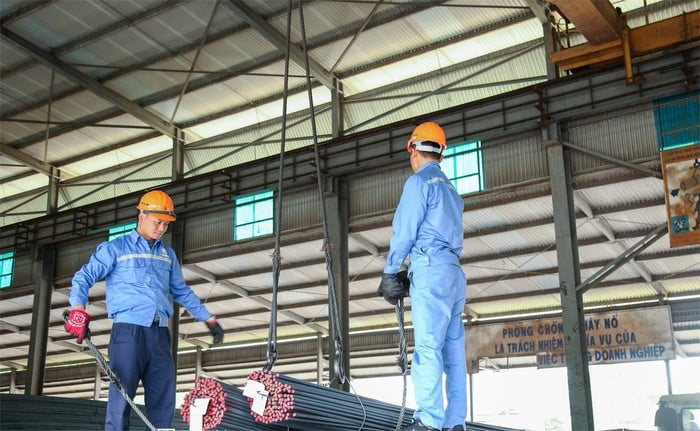



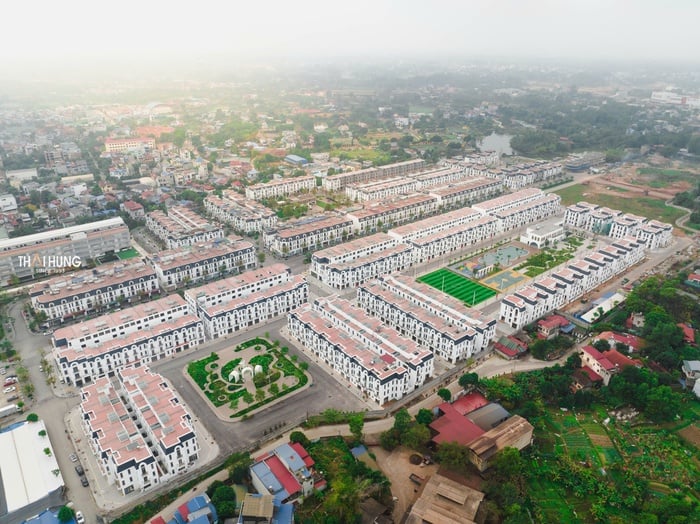
![[Photo] Multi-colored cultural space at the Exhibition "80 years of the journey of Independence - Freedom - Happiness"](https://vphoto.vietnam.vn/thumb/1200x675/vietnam/resource/IMAGE/2025/8/26/fe69de34803e4ac1bf88ce49813d95d8)



![[Photo] Hanoi: Authorities work hard to overcome the effects of heavy rain](https://vphoto.vietnam.vn/thumb/1200x675/vietnam/resource/IMAGE/2025/8/26/380f98ee36a34e62a9b7894b020112a8)

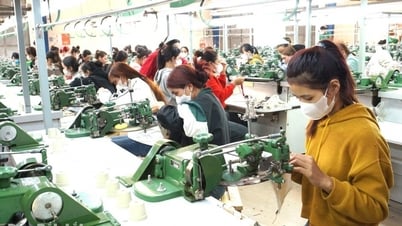






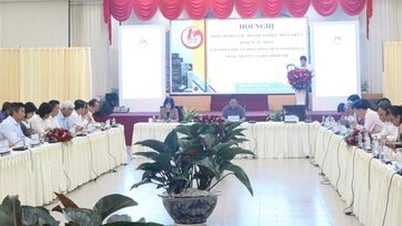



















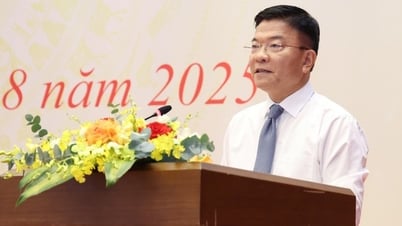
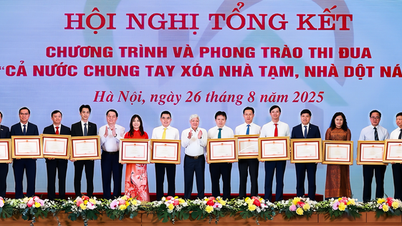


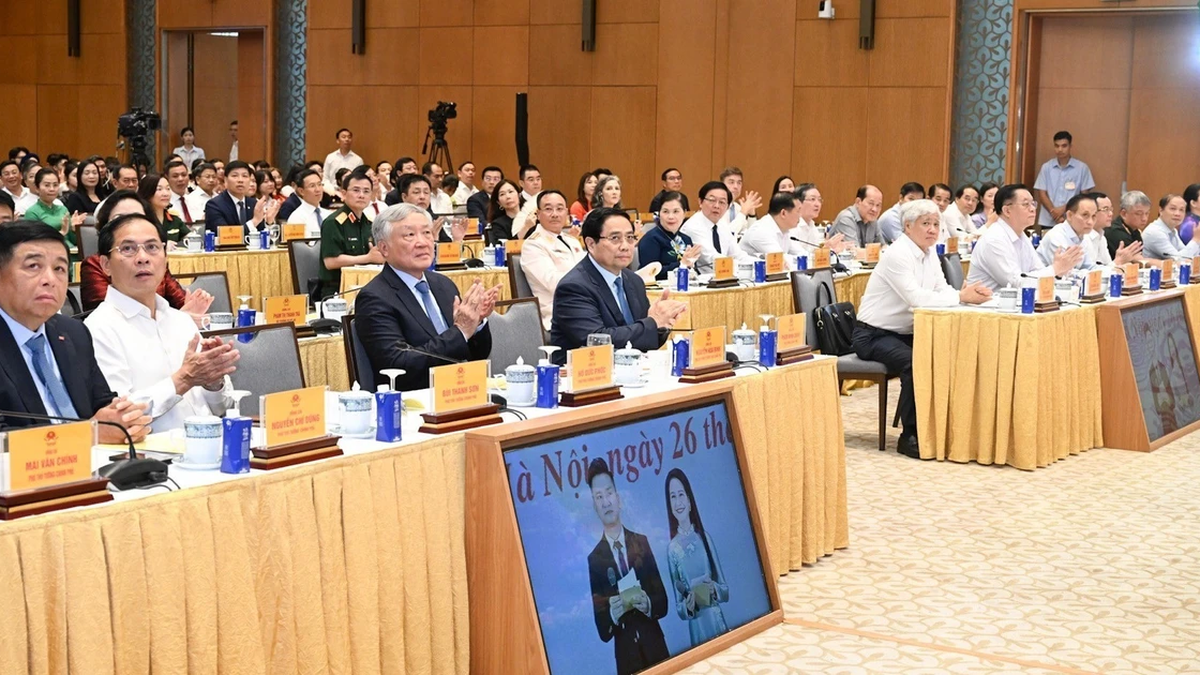
























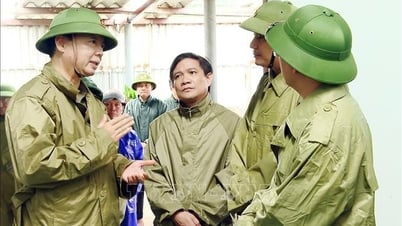

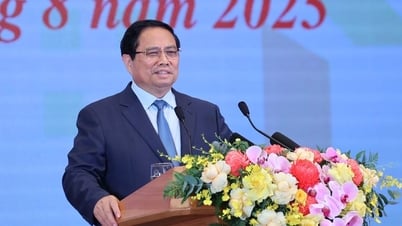
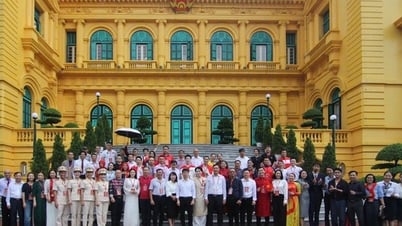



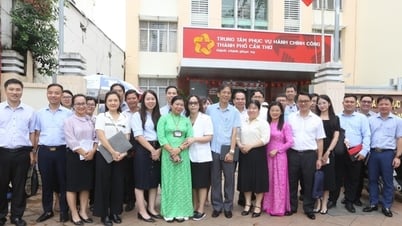

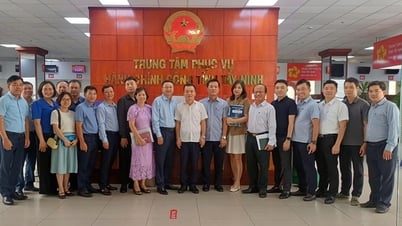


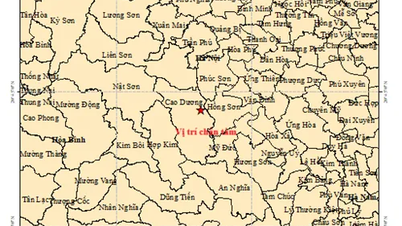


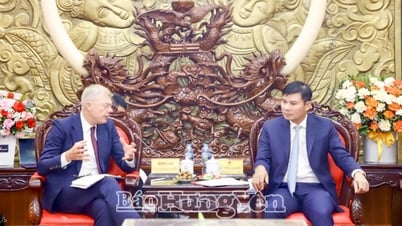

















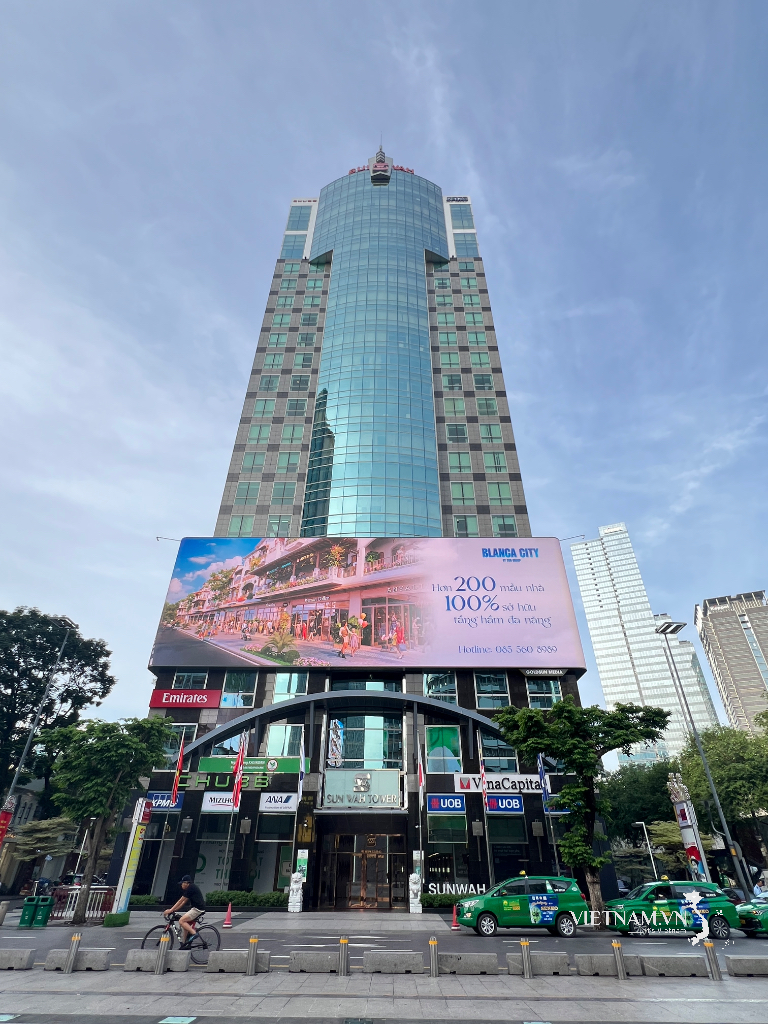


Comment (0)